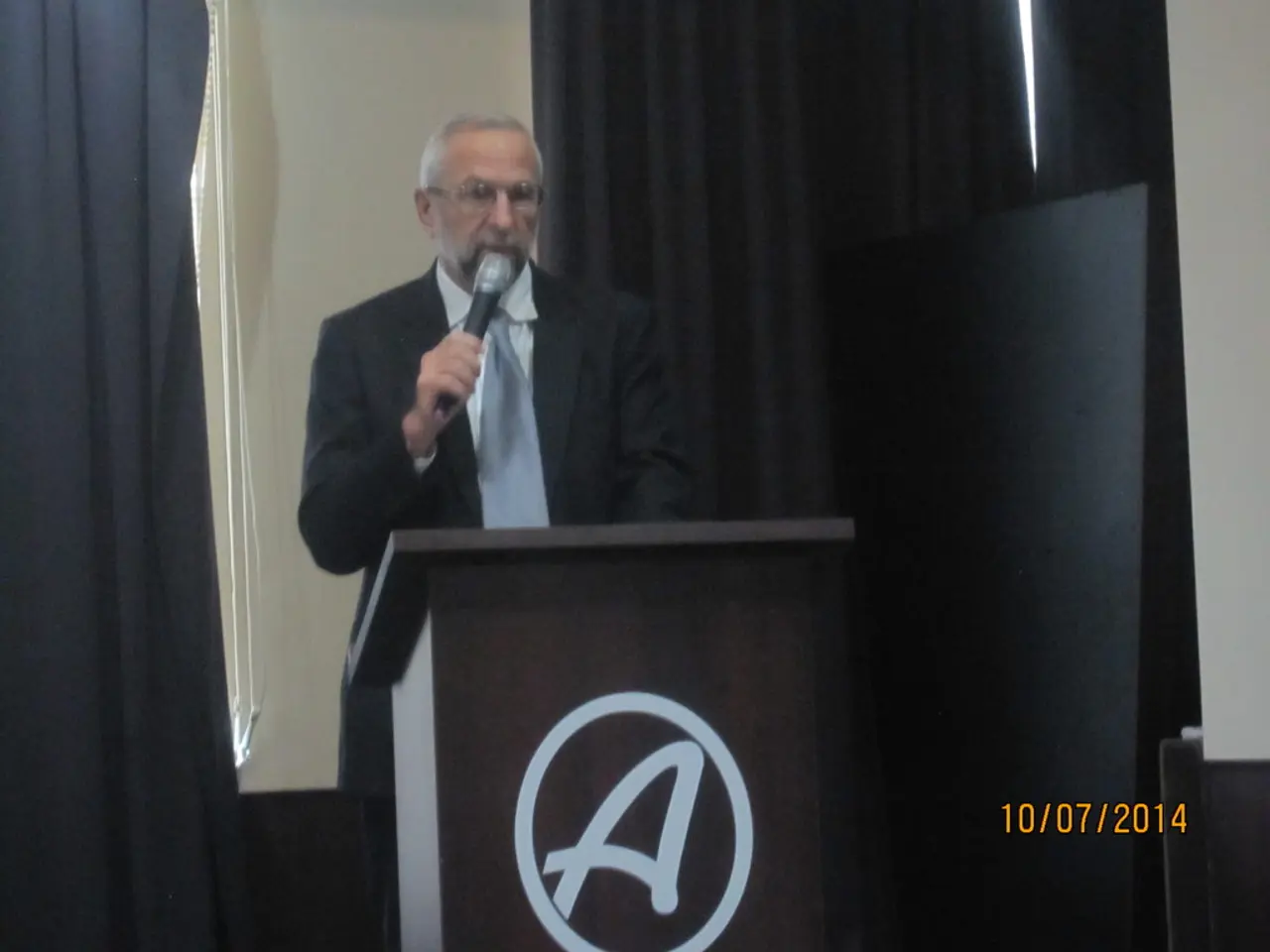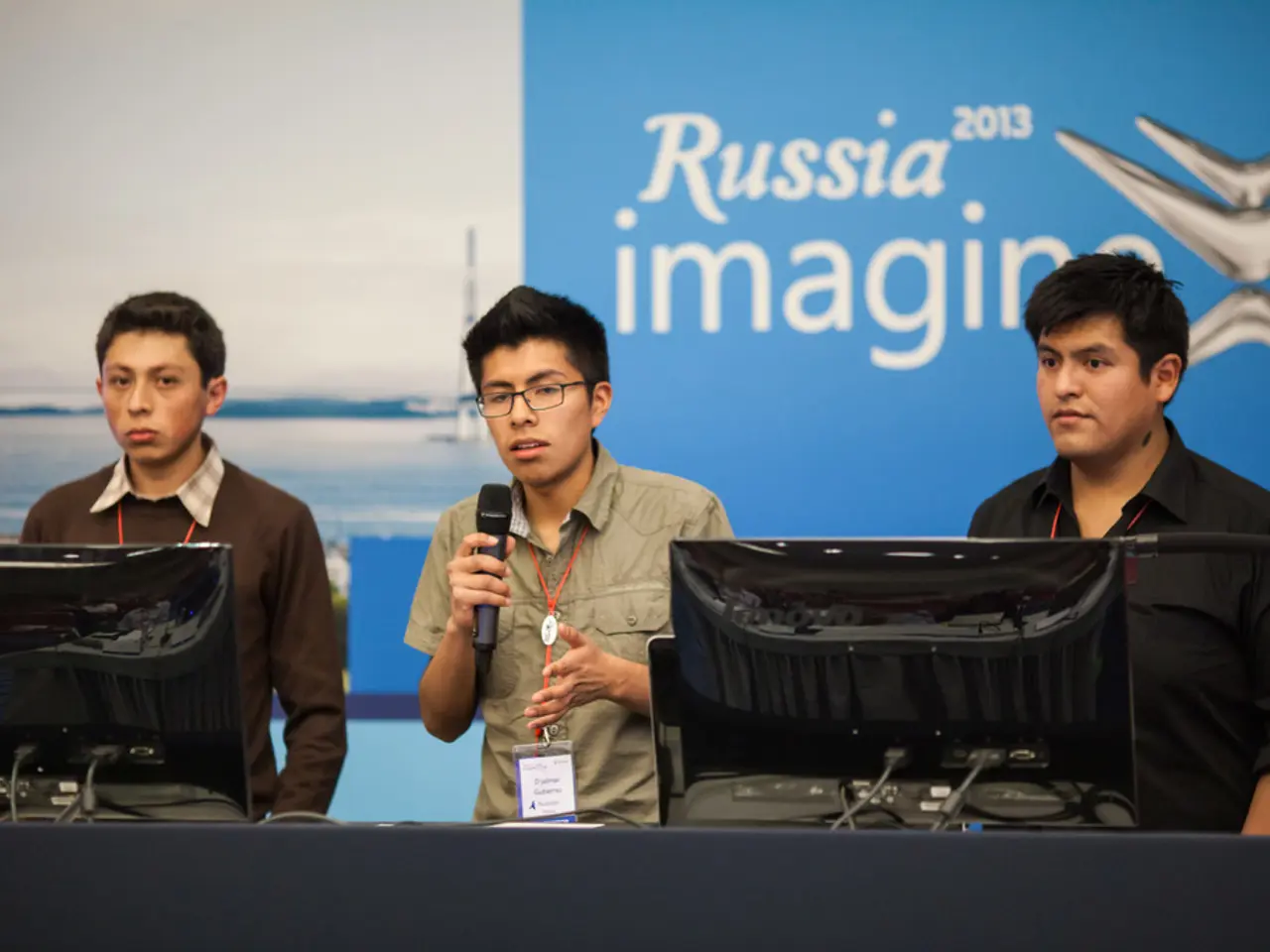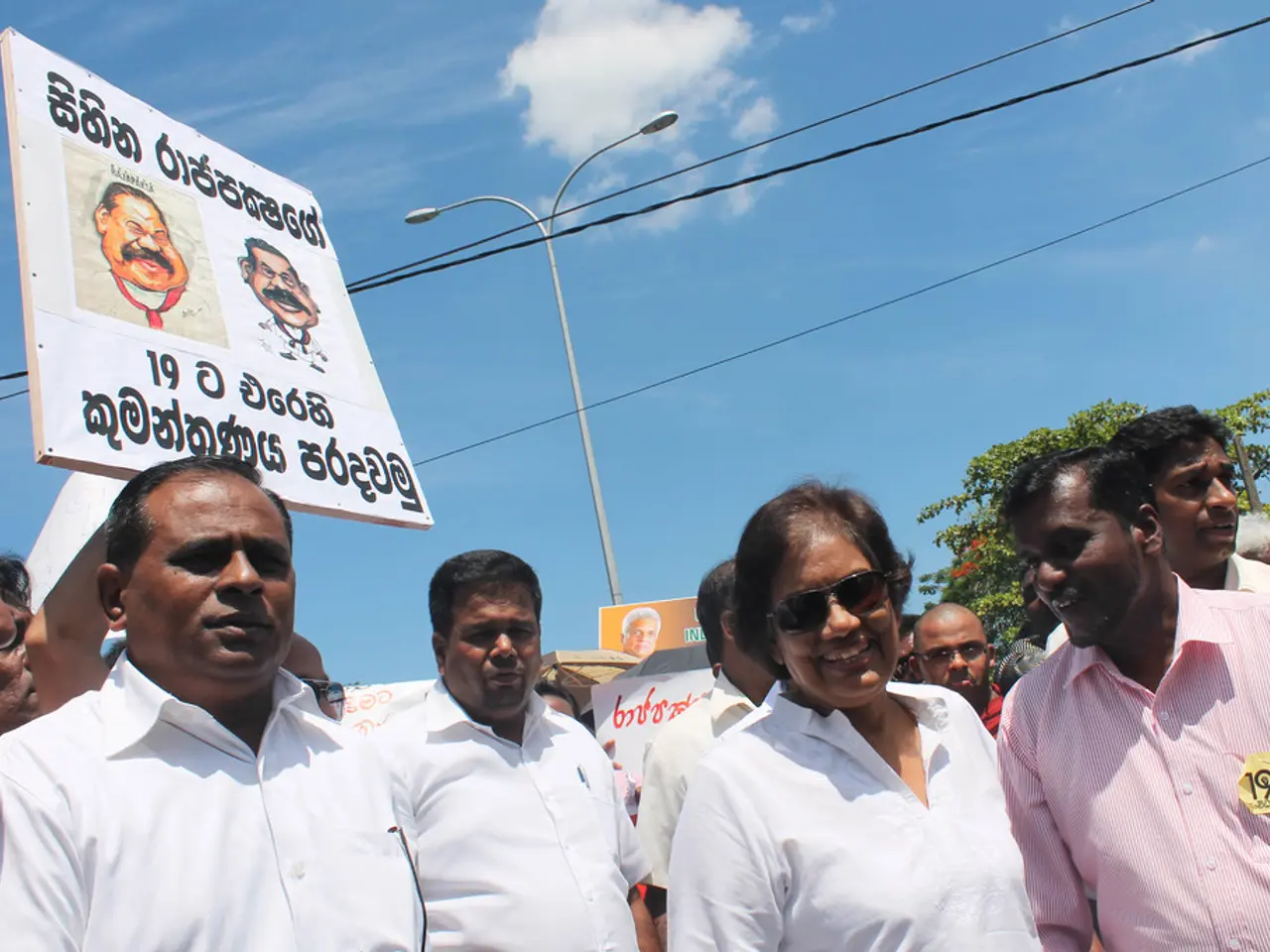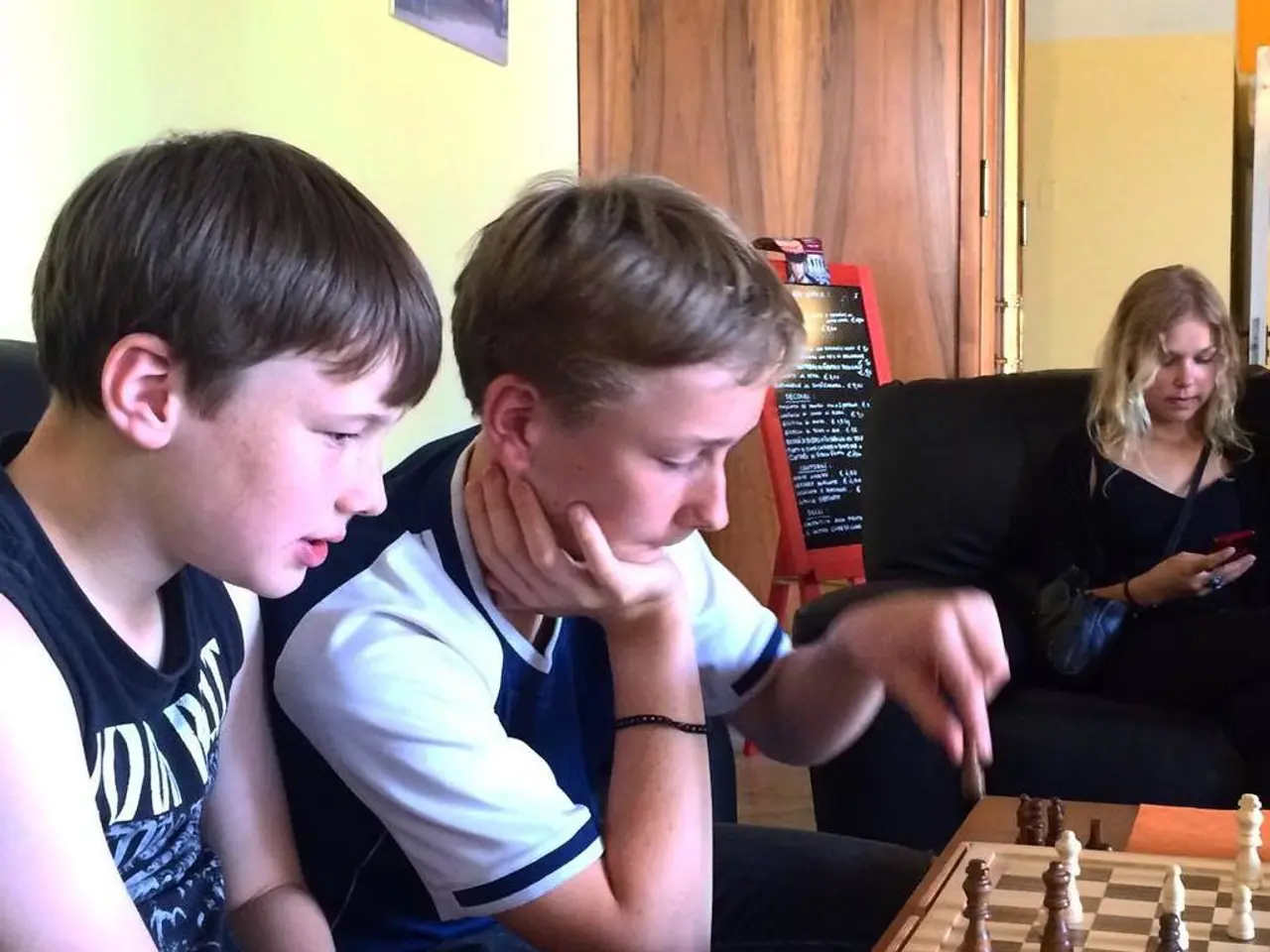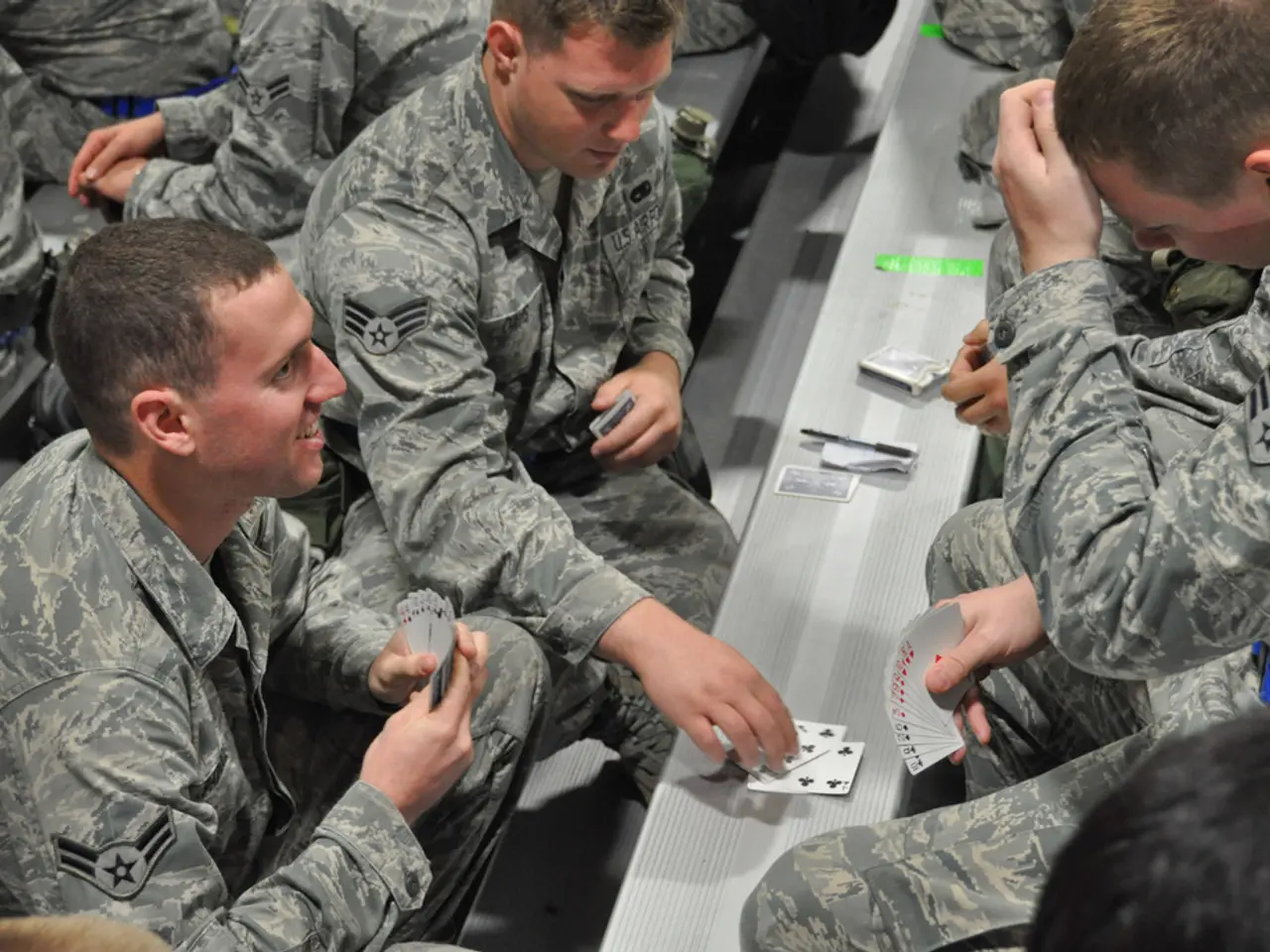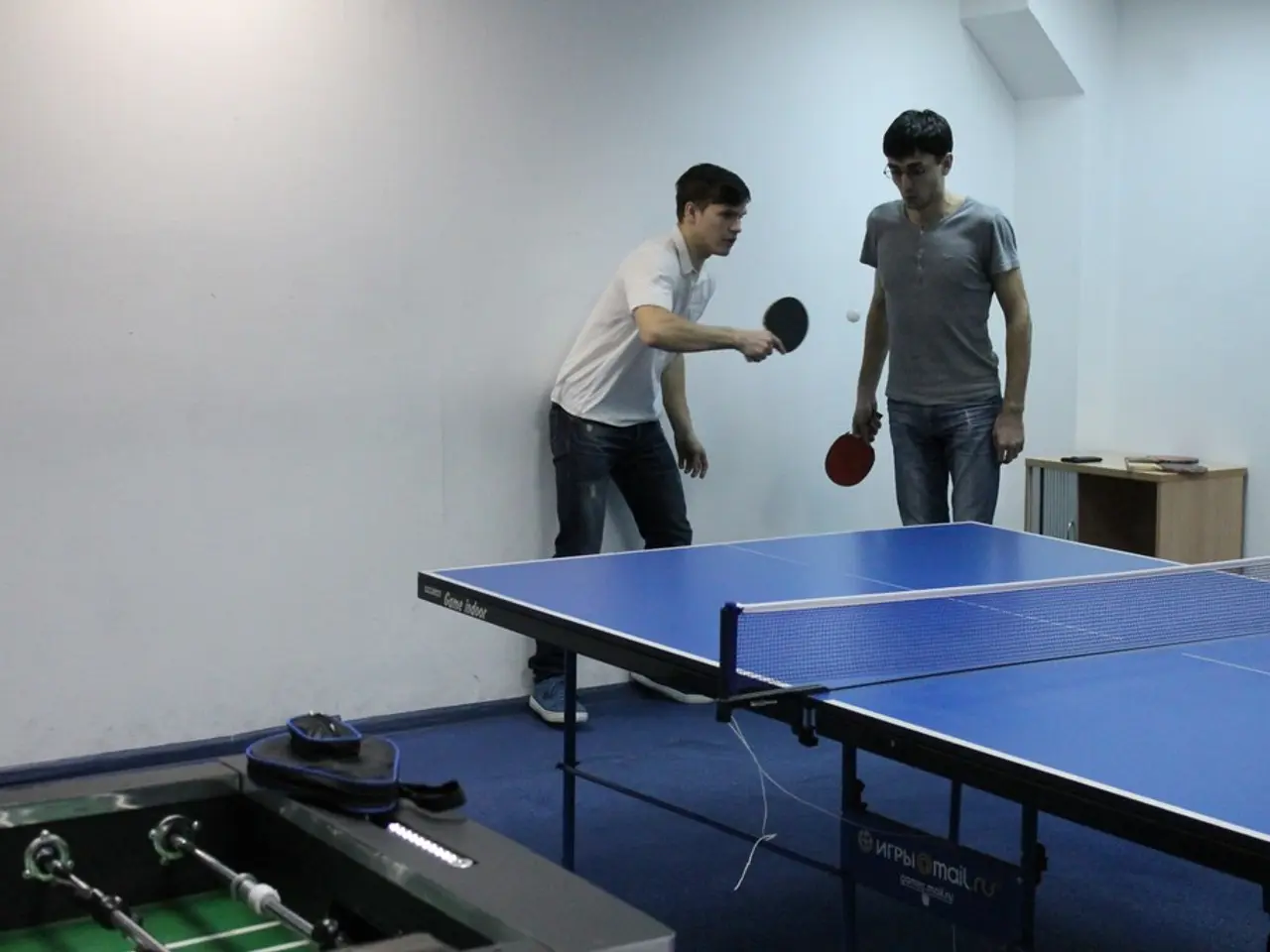SPD Party Conference: Saskia Esken Steps Down - A Divided SPD Persists
- by Johnny "Scan" Scantlebury
- 4 Mins
SPD Leader Saskia Esken Resigns, Leaving Party with Unresolved Issues - SPD Loses Leading Figure with Saskia Esken's Resignation
A teary-eyed Saskia Esken turns her gaze to the cheering crowd, a "All good then" tumbles from her lips as Lars Klingbeil leans over and whispers. It's over, done. But is everything really that easy?
After five and a half long years at the helm, Esken said her final goodbyes as chairperson at the SPD party conference. "My greatest honor," says Esken. In the end, it must have been a particularly grueling journey.
The ribbing, the jibes: It had become a lonely existence for Saskia Esken, who was elected as the first SPD chairperson by the base in 2019 and whose public impact was repeatedly criticized by many party members. First behind closed doors, then publicly.
Some of her critics may have been present in the Berlin "City Cube," where the SPD is holding its federal party conference this weekend, and now cheer her on. The way Saskia Esken was treated has left many in the party, especially at the base, bewildered and even hurt. And old scars are beginning to reopen at the party conference.
Saskia Esken Stays Silent
Esken presses both hands to her chest before starting her farewell speech on Saturday morning. She will speak for only 15 minutes, seemingly keeping it brief and painless.
She recalls how she was treated when she took office five and a half years ago and claims to have stabilized the party members after exhausting years in the grand coalition. "We turned things around," says Esken. She avoids self-criticism, just like Olaf Scholz did in his farewell speech. The forgiveness will surely come Esken's way. After all, large parts of the SPD had not spared attacks against her.
The newcomer who once challenged the establishment was later counted among them - and became the target of the historic defeat after the 2025 federal election.
For months, names whispered in the corridors of political Berlin about who could follow Esken: more confident in appearance, more popular in the party, more successful in the constituency. Mud-slinging followed, such as a leaked vacation trip during coalition negotiations. Finally, the general secretary in her home state of Baden-Württemberg quipped that Esken did not belong to the top candidates for the SPD cabinet. And many prominent figures remained silent.
One day before the signing of the black-red coalition contract, Esken drew the line, unexpectedly announcing her withdrawal. A post in the black-red cabinet was denied to her, and she now heads the education and family committee in the Bundestag. A consolation prize. Esken had dared to claim a cabinet post as party chairperson, de facto also claiming it. Like Klingbeil. But the internal pressure must have been too much.
In her brief speech, Esken doesn't utter a word about it, everyone knows anyway. Already at the beginning of the three-day party conference on Friday, the past, undistinguished weeks played a role. The party chairpersons couldn't avoid them in their application speeches either.
Public Criticism and Leadership in Politics
The public criticism that Esken had to endure was often harsh, according to Lars Klingbeil, who once served as her general secretary. However, critics argue that Klingbeil didn't manage the debate surrounding Esken as effectively, allowing it to fester and divide the party further.
Barbel Bas, Esken's successor, mused aloud about her own candidacy: "You seriously want to put yourself through that?" The SPD has had two female chairpersons so far: Saskia Esken and Andrea Nahles. Both stepped down with "mixed feelings," says Bas, implying that the party's handling of them was far from ideal.
It seems that the SPD has failed to learn from its past mistakes with Andrea Nahles, and has repeated some of them with Esken.
However, Esken appears unphased as she takes to the party stage. She thanks Olaf Scholz, the Jusos, the party, the staff at the Willy-Brandt-Haus, and the "great" Barbel Bas, to whom she is passing the baton. She believes Bas will be a "great" party chairwoman. To her long-time co-chairman, Lars Klingbeil, she says: "Thank you for your trust, thank you for your cooperation, and good luck." While they didn't always see eye to eye, they always agreed on one thing: the SPD can only be strong if it embraces its diversity and stays united.
The Burden of a Joint Leadership
The joint leadership of Klingbeil and Esken has shown its downsides. Klingbeil took the lead on setting the direction and claimed the issues that yielded points: fighting for industrial jobs, security policy. Esken barely made a dent in education and digitalization, areas where success is rare. Esken's weakness was also Klingbeil's strength. The question of who performs better is always present in a joint leadership.
Now, it's up to the new joint leadership of Klingbeil and Bas to regain the party's strength and heal the wounds of the past months. The election results reflect this. On the eve of the election, Bas was elected the new SPD chairwoman with an astonishing 95% of the vote, while Klingbeil received 64.9%.
In the end, Esken is presented with a piece of art featuring Willy Brandt. Klingbeil praises Esken's achievements and expresses his pride in having shared this journey with her, which is not yet over. Barbel Bas does not speak into the party microphone, seemingly at Esken's request, who appears eager to keep the official proceedings brief.
Enrichment Data:
Overall:The ongoing issue within the SPD (Social Democratic Party of Germany) after the departure of Saskia Esken and the election of Bärbel Bas as the new chairman/co-chairman centers on deep internal disagreements about Germany's defense policy, relations with Russia, and overall party leadership dynamics.
Key Points of the Issue:
- Disagreement on Rearmament and Russia Policy: There is a brewing split within the SPD regarding the party’s stance on rearmament (increasing Germany’s defense budget and capabilities) and its policy towards Russia. Some party members, often associated with the party’s traditional peace movement roots, view the perception of the Russian threat as exaggerated and oppose the significant increase in defense spending proposed by SPD leadership, including Finance Minister Lars Klingbeil. These dissenters support alternative approaches like negotiations with Russia to ensure peace in Europe, challenging the current party line set after Russia's 2022 invasion of Ukraine[1][3].
- Leadership Controversies and Power Struggles: Following the SPD’s poor results in the February 2025 federal election, Lars Klingbeil, who was reaffirmed as party chairman with reduced support, has faced internal criticism. His moves to consolidate power — such as replacing Rolf Mützenich with himself as head of the SPD parliamentary group — have intensified tensions. Mützenich and some dissenters have signed a manifesto advocating arms control and peace negotiations rather than rearmament[3][4].
- Bärbel Bas’s Election and Party Direction: Bärbel Bas was elected as co-chair with very strong support (95%), significantly higher than Saskia Esken’s previous results. However, the election of Bas alongside Klingbeil did not fully resolve party tensions. Klingbeil’s strategic mistakes and declining internal support indicate ongoing factional challenges, especially from the "old guard" and peace movement factions within the SPD who resist the current leadership’s defense policies[4].
- Potential Impact on Governance: This internal rebellion threatens the SPD’s slim governing majority in the Bundestag and could complicate legislative efforts related to defense budgets, arms deliveries, and the possible reinstatement of compulsory military service. The dissenters’ influence, while not a majority, is substantial enough to pose risks to the coalition government’s stability[3].
In summary, after Saskia Esken’s departure and Bärbel Bas’s election as co-chair, the SPD faces a significant internal rift characterized by disputes over Germany’s rearmament policy and relations with Russia, coupled with leadership struggles that reflect a divide between the party’s traditional peace-oriented factions and its current government leadership[1][3][4].
- I'm not sure I'm ready for this, as the ongoing issue within the SPD centers on deep internal disagreements about Germany's defense policy, relations with Russia, and overall party leadership dynamics.
- The policy-and-legislation battle within the SPD, triggered by the departure of Saskia Esken and the election of Bärbel Bas, revolves around contentious matters such as rearmament and Russia policy, exacerbating power struggles and leadership controversies.
